20 start with K start with K
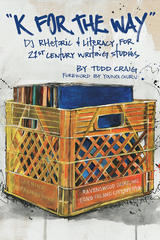
Using material from a larger qualitative research study that illustrates the Hip Hop DJ as a twenty-first-century new media reader, writer, and literary critic, Craig blends interviews from prominent and influential DJs in the Hip Hop community with narrative and interdisciplinary scholarship from writing studies, Hip Hop studies, African American studies, urban education, and ethnomusicology. The voices of DJs sit front and center, presenting a revolutionary conversation about writing and communication in the twenty-first century.
Weaving Craig’s life experiences with important discussions of racial literacies, “K for the Way” is a layered and utterly singular exploration of culture, identity, and literacy in America.
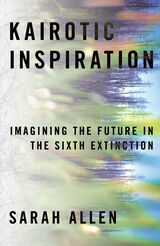
On the precipice of the Sixth Extinction, we face a frightening fate—ongoing ecological crises that may result in not only the extinction of a million species within decades but another mass extinction event like the one that wiped out the dinosaurs. In Kairotic Inspiration: Imagining the Future in the Sixth Extinction, Sarah Allen suggests that humans face this future, whatever it brings, by attending to the ways in which all beings are caught in the entangled processes of becoming. But change is often painful and requires inspiration. Allen explores a theory that shifts the concept of inspiration away from the unique genius of the individual and instead situates it within conceptual, human and nonhuman animal relations that can disrupt the state of being. To expand the understanding of change beyond the polarized binary that defines difference, the author builds on Nietzsche’s conceptualization of the Dionysian, which explains how the self is unmade through immersive experiences. This unmaking creates room for a different experience of becoming, one which Donna Haraway calls “becoming-with” and “producing-with.” In the end, Allen demonstrates how deepening kairotic connections can transform us as beings, thrusting us further into the processes of becoming and embracing the change that is possible in this living, changing, endangered world.
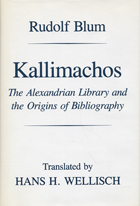
The famous library of Alexandria, founded around 295 BCE by Ptolemaios I, housed the greatest collection of texts in the ancient world and was a fertile site of Hellenistic scholarship. Rudolf Blum’s landmark study, originally published in German in 1977, argues that Kallimachos of Kyrene was not only the second director of the Alexandrian library but also the inventor of two essential scholarly tools still in use to this day: the library catalog and the “biobibliographical” reference work. Kallimachos expanded the library’s inventory lists into volumes called the Pinakes, which extensively described and categorized each work and became in effect a Greek national bibliography and the source and paradigm for most later bibliographic lists of Greek literature. Though the Pinakes have not survived, Blum attempts a detailed reconstruction of Kallimachos’s inventories and catalogs based on a careful analysis of surviving sources, which are presented here in full translation.
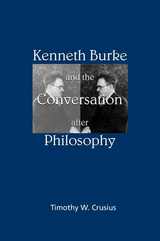
Throughout much of his long life (1897–1993), Kenneth Burke was recognized as a leading American intellectual, perhaps the most significant critic writing in English since Coleridge. From about 1950 on, rhetoricians in both English and speech began to see him as a major contributor to the New Rhetoric. But despite Burke's own claims to be writing philosophy and some notice from reviewers and critics that his work was philosophically significant, Timothy W. Crusius is the first to access his work as philosophy.
Crusius traces Burke's commitment and contributions to philosophy prior to 1945, from Counter-Statement (1931) through The Philosophy of Literary Form (1941). While Burke might have been a late modernist thinker, Crusius shows that Burke actually starts from a position closely akin to such postmodern figures as Michel Foucault and Richard Rorty.
Crusius then examines Burke's work from A Grammar of Motives (1945) up to his last published essays, drawing most heavily on A Rhetoric of Motives, The Rhetoric of Religion, and uncollected essays from the 1970s. This part concerns Burke's contributions to human activities always closely associated with rhetoric-hermeneutics, dialectic, and praxis. Burke's highly developed notion of our species as the "symbol-using animal," argues Crusius, draws together the various strands of his later philosophy—his concern with interpretation, with dialectic and dialogue, with a praxis devoted to awareness and control of the self-deceiving and potentially self-destructive motives inherent in language itself.
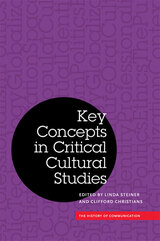
This volume brings together sixteen essays on key and intersecting topics in critical cultural studies from major scholars in the field. Taking into account the vicissitudes of political, social, and cultural issues, the contributors engage deeply with the evolving understanding of critical concepts such as history, community, culture, identity, politics, ethics, globalization, and technology. The essays address the extent to which these concepts have been useful to scholars, policy makers, and citizens, as well as the ways they must be rethought and reconsidered if they are to continue to be viable.
Each essay considers what is known and understood about these concepts. The essays give particular attention to how relevant ideas, themes, and terms were developed, elaborated, and deployed in the work of James W. Carey, the "founding father" of cultural studies in the United States. The contributors map how these important concepts, including Carey's own work with them, have evolved over time and how these concepts intersect. The result is a coherent volume that redefines the still-emerging field of critical cultural studies.
Contributors are Stuart Allan, Jack Zeljko Bratich, Clifford Christians, Norman Denzin, Mark Fackler, Robert Fortner, Lawrence Grossberg, Joli Jensen, Steve Jones, John Nerone, Lana Rakow, Quentin J. Schultze, Linda Steiner, Angharad N. Valdivia, Catherine Warren, Frederick Wasser, and Barbie Zelizer.
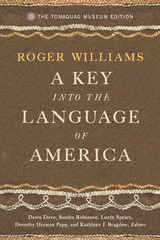
Roger Williams’s Key into the Language of America, first published in 1643, is one of the most important artifacts of early Indigenous American culture. In it, Williams recorded the day-to-day experience of the Narragansett people of Rhode Island in their own words, the first documentation of an American Indian language in English. Williams’s Key can be read at many levels because of its historical, literary, political, and religious significance. Its greatest value, though, is its intimate portrait of the Narragansett and their linguistic neighbors in the early years of European colonial settlement, before disease, dislocation, warfare—in particular, King Philip’s War—and colonial interference had diminished their population and power in the region. An extraordinary achievement, Williams’s Key gives us a contemporary account of Narragansett family life, of their sociability and skill in business, their dress, foodways, and the farming, fishing, and hunting that formed the basis of their sustenance practices.
This new Tomaquag Museum edition includes for the first time cultural commentary provided by the Narragansett Tribe as well as modern linguistic information provided by a leading authority in the study of American Indian languages.
The Tomaquag Museum, located in Exeter, Rhode Island, is an Indigenous nonprofit organization dedicated to sharing the culture, arts, and history of the Narragansett and other tribal communities of southern New England.
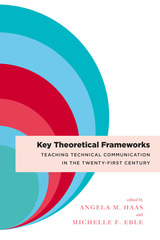
The collection provides a valuable resource for teachers new to translating social justice theories to the classroom by presenting concrete examples related to technical communication. Each contribution adopts a particular theoretical approach, explains the theory, situates it within disciplinary scholarship, contextualizes the approach from the author’s experience, and offers additional teaching applications.
The first volume of its kind, Key Theoretical Frameworks links the theoretical with the pedagogical in order to articulate, use, and assess social justice frameworks for designing and teaching courses in technical communication.
Contributors: Godwin Y. Agboka, Matthew Cox, Marcos Del Hierro, Jessica Edwards, Erin A. Frost, Elise Verzosa Hurley, Natasha N. Jones, Cruz Medina, Marie E. Moeller, Kristen R. Moore, Donnie Johnson Sackey, Gerald Savage, J. Blake Scott, Barbi Smyser-Fauble, Kenneth Walker, Rebecca Walton
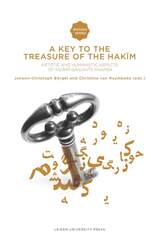
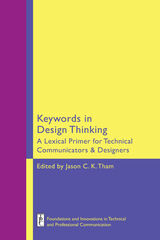
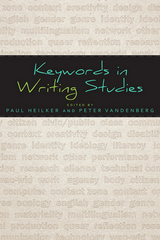
Keywords in Writing Studies is an exploration of the principal ideas and ideals of an emerging academic field as they are constituted by its specialized vocabulary. A sequel to the 1996 work Keywords in Composition Studies, this new volume traces the evolution of the field’s lexicon, taking into account the wide variety of theoretical, educational, professional, and institutional developments that have redefined it over the past two decades.
Contributors address the development, transformation, and interconnections among thirty-six of the most critical terms that make up writing studies. Looking beyond basic definitions or explanations, they explore the multiple layers of meaning within the terms that writing scholars currently use, exchange, and question. Each term featured is a part of the general disciplinary parlance, and each is a highly contested focal point of significant debates about matters of power, identity, and values. Each essay begins with the assumption that its central term is important precisely because its meaning is open and multiplex.
Keywords in Writing Studies reveals how the key concepts in the field are used and even challenged, rather than advocating particular usages and the particular vision of the field that they imply. The volume will be of great interest to both graduate students and established scholars.
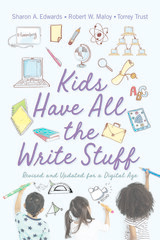
You'll discover:
· how to implement writing as a part of daily life with family and friends;
· processes and invitations fit for young writers;
· strategies for connecting writing to math and coding;
· writing materials and technologies; and
· creative and practical writing ideas, from fiction, nonfiction, and videos to blogs and emails.
In order to connect writing to today's digital revolution, veteran educators Sharon A. Edwards, Robert W. Maloy, and Torrey Trust reveal how digital tools can inspire children to write, and a helpful companion website brings together a range of resources and technologies. This essential book offers enjoyment and inspiration to young writers!

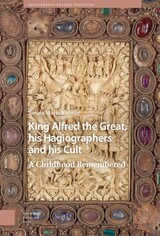
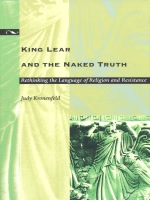
Kronenfeld’s focus expands from the text of Shakespeare’s play to a discussion of a shared Christian culture—a shared language and set of values—a common discursive field that frames the social ethics of the play. That expanded focus is used to address the multiple ways that clothing and nakedness function in the play, as well as the ways that these particular images and terms are understood in that shared context. As Kronenfeld moves beyond Lear to uncover the complex resonances of clothing and nakedness in sermons, polemical tracts, legislation, rhetoric, morality plays, and actual or alleged practices such as naked revolts by Anabaptists and the Adamians’ ritual disrobing during religious services, she demonstrates that many key terms and concepts of the period cannot be tied to a single ideology. Instead, they represent part of an intricate network of thought shared by people of seemingly opposite views, and it is within such shared cultural networks that dissent, resistance, and creativity can emerge. Warning her readers not to take the language of literary texts out of the linguistic context within which it first appeared, Kronenfeld has written a book that reinterprets the linguistic model that has been the basis for much poststructuralist criticism.
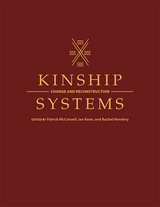
One key argument in the book is that linguistic evidence for reconstruction of ancient terminologies can provide strong independent evidence to complement anthropologists’ notions of structural kinship transformations and ground them in actual historical and geographical contexts. There are principles that we all share, no matter what kind of society we live in, and these provide a common “language” for anthropology and linguistics. With this language we can accurately compare how family relations are organized in different societies, as well as how we talk about such relations. Because this concept has often been denied by the trajectories in anthropology over the last few decades, Kinship Systems represents a reassertion of, and advances on, classical kinship theory and methods. Innovations and interdisciplinary methods are described by the originators of the new approaches and other leading regional experts.
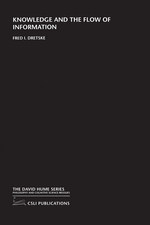

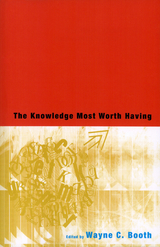
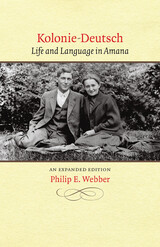
Founded as a communal society in 1855 by German Pietists, the seven villages of Iowa’s Amana Colonies make up a community whose crafts, architecture, and institutions reflect—and to an extent perpetuate—the German heritage of earlier residents. In this intriguing blend of sociolinguistic research and stories from Colonists both past and present, Philip Webber examines the rich cultural and linguistic traditions of the Amanas.
Although the Colonies are open to the outside world, particularly after the Great Change of 1932, many distinctive vestiges of earlier lifeways survive, including the local variety of German known by its speakers as Kolonie-Deutsch. Drawing upon interviews with more than fifty Amana-German speakers in 1989 and 1990, Webber explores the nuances of this home-grown German, signaling the development of local microdialects, the changing pattern in the use of German in the Colonies, and the reciprocal influence of English and German on residents’ speech. By letting his sources tell their own stories of earlier days, in which the common message seems to be wir haben fun gehabt or “we had fun working together,” he illuminates the history and unique qualities of each Colony through the prism of language study.
Webber’s introduction to this paperback edition provides an up-to-date itinerary for visitors to the Colonies, information about recent publications on Amana history and culture, and an overview of expanded research opportunities for language study and historical inquiry. The result is an informative and engaging study that will be appreciated by linguists, anthropologists, and historians as well as by general readers interested in these historic villages.

READERS
Browse our collection.
PUBLISHERS
See BiblioVault's publisher services.
STUDENT SERVICES
Files for college accessibility offices.
UChicago Accessibility Resources
home | accessibility | search | about | contact us
BiblioVault ® 2001 - 2024
The University of Chicago Press









